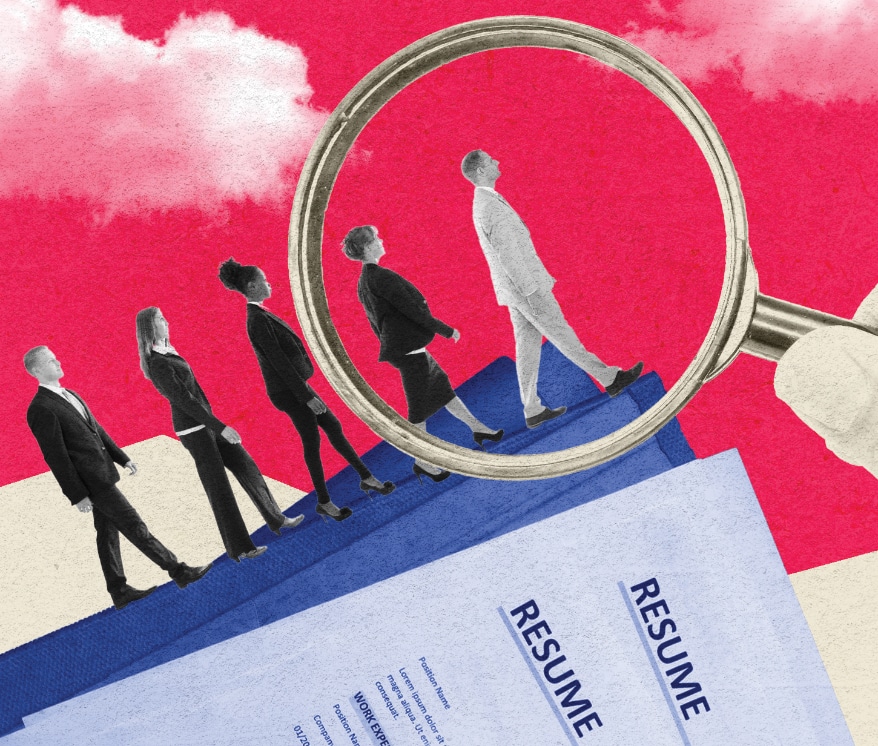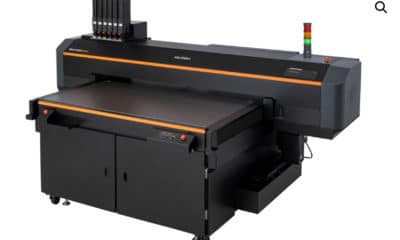IF YOUR PRINT company is anything like ours, hiring people has been incredibly easy for the past 18 months. Smart, motivated people are likely lining up outside your door. Recent high school and college graduates are just dying to get into print. Everyone wants to work for us, and printers just can’t keep all these qualified candidates away.
Obviously, I’m laying the sarcasm on thick – none of this is true. To say the job market has been and still is tough would be a gigantic understatement. The reality is that printers are competing for talent with “sexier” industries. Our labor force is aging, and many industry veterans left the industry or retired during COVID. We need to attract fresh talent and replace those who are gone.
We’re both members of Generation X (1965-1980). We’ve worked with Baby Boomers (1946-1964) for our entire lives, but today we must turn our attention to the younger generations. Millennials (1981-1996) and Gen Z (1997-2012) now make up most of the workforce.
We’re going to go out on a limb and assume many of you readers are from our generation. Let’s look together at what older generations can do to fill labor gaps by hiring and retaining members of the younger generations.
Are the Younger Generations Really That Different?
We think the generations are more alike than many seem to believe (the Millennials have been getting a bad rap for years). Most of the young people I know want (or expect) the following from their employer:
- To be doing interesting work.
- To be given the opportunity to grow, develop, learn, and advance.
- To find purpose and meaning in their work.
- To be rewarded based on performance.
- To have their opinions and feedback heard.
- To be paid fairly and offered meaningful benefits.
Wouldn’t this list apply to older generations, too? We certainly want interesting work, to be empowered, to be rewarded, to be paid fairly, and to have opportunities to advance and be heard. We believe that when it comes to management and engaging employees, best practices apply consistently to all generations.
Advertisement
What Sets Young People Apart?
Similarities aside, some differences between generations are important to note. Understanding and addressing these differences can significantly impact our ability to recruit and retain the younger generations. Among other examples, the younger generation …
- … is not afraid to change jobs. Treat them poorly or disrespect them, and they will be posting resumes on Indeed, Handshake, or LinkedIn within the hour.
- … prioritizes purpose. We all want purpose in what we do, but the younger generations are far less likely to work for only a paycheck. They want the company’s work and their role to mean something. Olympus’s core purpose is to “create a rewarding workplace,” which we define as one in which team members are proud of where they work, compensated fairly, comfortable and safe, and challenged and empowered to grow. We make sure every potential new hire understands this and how their role contributes.
- … is interested in different perks and benefits. We highly value lifestyle perks such as health insurance, paid vacation, and retirement plans. The younger generations tend to value flexibility and perks related to children and education. This isn’t just an assumption – we make a point to ask team members which benefits they appreciate and what they wish we offered. Examples range from quarterly profit-sharing plans and buying more PTO to tuition reimbursements, hardship loans, and a scholarship program.
- …wants flexibility in when and where they work. As printers, we do not advocate for 100-percent remote work. We need staff in the shop. However, a little scheduling flexibility and some remote work opportunities can go a long way when competing for talent. Ask yourself: Does it really matter when, how, or where the work gets done as long as it gets done?

Tips for Engaging the Younger Generations
So what can we do to attract the younger generations? Here are some thoughts:
- Reward performance over seniority. Advancement should not be based solely on age. You should recognize tenure – if someone has been with you for 20-plus years, that’s a big deal – but you also must promote and reward performance, even if it’s a 20-something-year-old. The better employee should get the promotion and the bigger raise regardless of tenure.
- Get rid of dumb rules. Simply ask your team about your own company’s version of the dreaded TPS report. For us, examples have included a requirement for manager’s to approve quality sign-offs, strict rules about lunchbreaks, and arbitrary rules about employee sign-in/sign-outs. Whatever you do, eliminate phrases like “that’s the way we do it around here,” “that’s how it’s always been done,” and “in my day, nobody let me get away with that” from your team’s vocabulary.
- Praise good work. The younger generations grew up in a society of instant gratification. If someone is doing a good job, tell them exactly that, and make sure to do it right now. Positive reinforcement can go a long way.
- Discuss the long term. The traditional annual performance review is dead. The younger generations don’t want a backward-looking valuation of their performance based on static criteria. However, they do want to know what their career path looks like. Set aside some time for a forward-looking conversation about the employee’s aspirations and how he or she can achieve them.
- Focus on training and development. One way to do this is to focus on context over control by explaining why (context) rather than telling someone what to do (control). Team members who understand the bigger picture generally perform better. Also keep in mind that no two people learn the same way. Vary your learning strategy and the tools you employ to train, from peer coaching and mentorships to cross-functional teams and internal wikis.
We are not experts on generations. However, we are confident that putting these tips into practice can help address skills gaps in your business.
One of the coolest things about the younger generations is their tendency to share their job experiences on social media and talk about their employers on Glassdoor. If you can get a little momentum going in engaging the younger generations, it could open the floodgates for other motivated individuals to want to join your team.
Advertisement


 VEHICLE WRAPS + GRAPHICS3 weeks ago
VEHICLE WRAPS + GRAPHICS3 weeks ago
 Press Releases3 weeks ago
Press Releases3 weeks ago
 Case Studies3 weeks ago
Case Studies3 weeks ago
 Case Studies1 week ago
Case Studies1 week ago
 Benchmarks3 weeks ago
Benchmarks3 weeks ago
 Press Releases2 months ago
Press Releases2 months ago
 Press Releases3 weeks ago
Press Releases3 weeks ago
 Press Releases2 months ago
Press Releases2 months ago



















